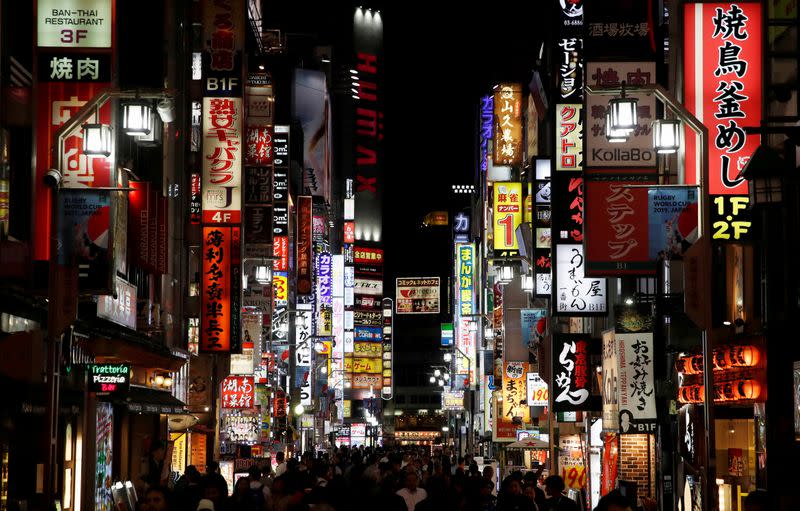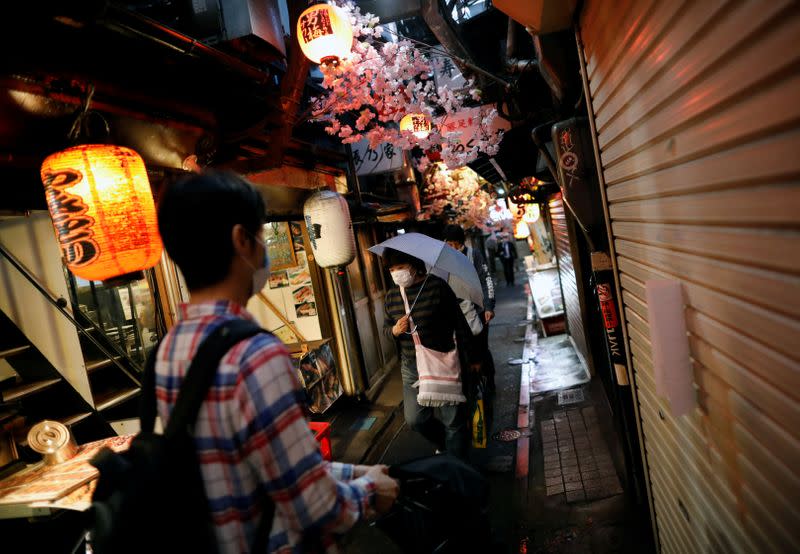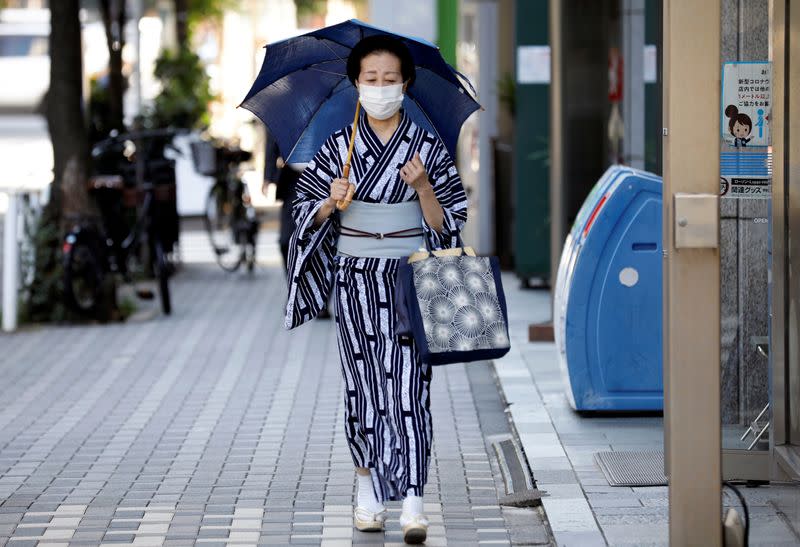Speak quietly and follow the rules, Tokyo nightclubs told as coronavirus re-emerges
By Kaori Kaneko
TOKYO (Reuters) - Authorities will conduct coronavirus testing in Tokyo's nightlife districts, where infections have surged again, and are urging nightclub hosts and hostess to follow advice on safely interacting with customers, officials said on Friday.
Economy Minister Yasutoshi Nishimura, who leads Japan's pandemic response, said after meeting Tokyo Governor Yuriko Koike and experts in the evening, that the government would carry out tests "strategically" in the nightlife districts.
He did not give details of what such testing would involve but said it would be an aggressive programme.
Guidelines for nightclubs include providing customers with enough space with good ventilation and avoiding speaking loudly, Nishimura told reporters earlier.
Tokyo reported a record daily high of 243 new infections on Friday. Infections in the capital have crept up since the government lifted a state of emergency about a month ago, with the Kabukicho red-light district becoming a major source of cases.
Clusters have been found among Kabukicho's many host clubs, where young men entertain women customers over drinks, and also at the female equivalent hostess or "cabaret" clubs.
Outbreaks have also occurred in similar clubs in Ikebukuro's red-light district, as well as in some cafes where women dress up as maids to entertain customers in the Akihabara electronics town.
"Infections are coming out of host and cabaret clubs and it's important to take firm measures there," Nishimura said. "We need to make sure they thoroughly follow guidelines."
Separately, Koike said the metropolis would step up efforts to educate nightlife workers, including with a new video that will be available on its website next week.
Koike showed reporters a clip of the video in which a young host sits at a night club in one frame asking a doctor in the opposite frame, via video chat, what kind of symptoms young people could expect if they contracted the virus.
"In this way, they can pose whatever questions they have directly to a doctor and get easy-to-understand explanations," she said. Questions range from how to safely greet customers to where to go to take a test.
The current coronavirus situation in Tokyo is different to April, when the government imposed a state of emergency and asked people to stay at home and businesses to close. Japan has had about 20,000 confirmed cases of the coronavirus and 980 deaths.
Hokkaido University Professor Hiroshi Nishiura, a member of the government's coronavirus response team, said Japan is at a turning point and it would be too late if no measures are taken appropriately.
(Reporting by Kaori Kaneko, Chang-Ran Kim, Junko Fujita and Takashi Umekawa; Writing by Chris Gallagher; Editing by Angus MacSwan and Frances Kerry)




